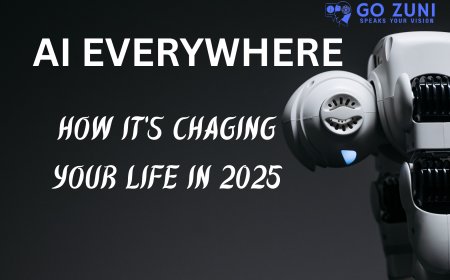Why AI Is a Game Changer in Digital Marketing
When I first dipped my toes into digital marketing years ago, rule-based automation felt cutting-edge: scheduling posts, A/B testing headlines, segmenting audiences by simple demographics. Today, ai digital marketing tools can sift through mountains of behavioral data in seconds, spotting patterns no human could parse manually. This shift matters because modern consumers expect personalized experiences—relevant product suggestions, dynamic content, timely outreach. AI elevates our capacity to meet those expectations.
- Personalization at scale: Instead of static segments (“women 25–34”), AI clusters micro-segments based on browsing habits, past purchases, and engagement signals. The result? Campaigns that speak to individual preferences.
- Efficiency and speed: Routine tasks—ad bidding, content optimization, performance forecasting—get turbocharged. Marketers spend less time wrestling spreadsheets and more time crafting strategy.
- Data-driven creativity: Imagine AI surfacing unexpected audience insights that spark a fresh campaign idea. That synergy of human intuition and machine analysis is where the magic happens.
This evolution underpins why ai startups and established ai companies alike are racing to develop smarter marketing platforms. From the best ai tools for social listening to predictive analytics engines, digital marketing in 2025 is all about leveraging these innovations to connect meaningfully with audiences.
Personalization at Scale: The Heart of AI Digital Marketing
A friend working at an e-commerce brand once shared: “Our engagement shot up when we started using an AI recommendation engine that learned from each click.” That real-world story illustrates a vital trend: consumers expect brands to “know” them, and AI is the key.
- Dynamic content generation
AI copywriting assistants can draft headlines, product descriptions, and even personalized email sequences. These tools, often developed by leading artificial intelligence companies, reduce writer’s block and free writers to refine tone and narrative. In 2025, we’ll see these assistants improve further, offering deeper brand-voice customization. - Predictive customer journeys
By analyzing past behavior, AI can predict the next likely action whether a user is primed to buy or needs a nurturing touchpoint. Marketers can set up automated flows that adapt in real time: sending a discount to someone hovering on checkout or recommending complementary products post-purchase. - Real-time optimization
AI-driven bid management and budget allocation shift resources to the best-performing channels without manual intervention. The days of checking dashboards hourly could give way to near-instant adjustments informed by machine learning models.
These capabilities aren’t theoretical. Whether you’re eyeing ai startup companies that specialize in personalization engines or evaluating top ai companies for partnerships, this personalization wave is central to digital marketing’s future.
Emerging AI Tools and Platforms: What to Watch
As an IT enthusiast exploring career paths, you might wonder: which tools should I get familiar with? In 2025, the landscape will include both established players and nimble ai startups. Here are categories to keep on your radar:
- Content generation and augmentation: Beyond simple text generation, advanced models can craft multi-modal content (images, video snippets, interactive elements). Familiarize yourself with platforms integrating generative AI into editorial workflows.
- Customer data platforms (CDPs) enhanced by AI: Next-gen CDPs will unify data from CRM, social, web analytics, and even IoT signals (think ai in manufacturing devices or retail foot-traffic sensors), applying AI to create unified customer profiles.
- Predictive analytics suites: These platforms forecast trends seasonal demand shifts, churn risk, lifetime value projections. Careers building or customizing these solutions will be in demand.
- Chatbots and conversational AI: Intelligent chatbots go beyond FAQs, engaging in nuanced conversations, triaging support issues, or guiding purchase decisions. Learning to design and train such systems is a valuable skill.
- Visual and voice search optimization tools: As ai in retail evolves, tools that interpret images (e.g., “find similar products”) or voice queries grow vital. Understanding how to integrate these into e-commerce experiences will set you apart.
Many of these offerings come from a mix of ai companies to invest in and promising ai startups. Keeping an eye on funding rounds, product roadmaps, and user reviews gives you insight into which platforms are genuinely gaining traction versus fleeting hype.
Spotlight on AI Startups and Top AI Companies
Behind every breakthrough are the innovators driving it. In 2025, the ecosystem of ai startups and established players will continue to flourish:
- AI startups: Often agile, they tackle niche pain points perhaps a startup offering hyper-localized ad targeting using computer vision in retail spaces, or one optimizing manufacturing supply chains with predictive maintenance insights (showcasing ai in manufacturing). These companies can move fast, working closely with pilot customers to refine offerings.
- AI startup companies to watch: Look for those with strong demo results, real-world pilot case studies, and partnerships with recognized brands. A small AI-powered analytics firm boosting a mid-sized retailer’s conversion rate by 20% is more compelling than grand promises without evidence.
- Top AI companies: The big names those artificial intelligence companies with broad platforms will keep innovating. They often acquire or partner with startups to fill gaps. As an IT professional, understanding these ecosystems (APIs, integrations, vendor lock-in considerations) is critical.
- Best AI tools: While “best ai” can be subjective, focus on tools with transparent performance metrics, active user communities, and clear ethical guidelines. For instance, an AI platform that explains its recommendations (“explainable AI”) can help marketers trust and fine-tune campaigns.
If you’re considering investment, research both financials and technology differentiation. Evaluate whether a startup’s approach to data privacy, model transparency, and integration flexibility aligns with market needs. In digital marketing’s realm, trust and compliance (e.g., respecting user consent) are non-negotiable.
Industry-Specific Applications: AI in Manufacturing and AI in Retail
While our focus is digital marketing, it’s worth noting how AI permeates other sectors, influencing marketing tactics indirectly:
- AI in manufacturing: Smart factories generate data about production, quality, and maintenance. Marketers can leverage these insights to create more authentic campaigns: perhaps highlighting sustainability improvements or superior product reliability. If you work at an IT intersection of manufacturing and marketing, you might build dashboards that translate technical data into compelling marketing narratives.
- AI in retail: Brick-and-mortar stores increasingly use AI-powered sensors to track foot traffic, heatmaps, and in-store behavior. Integrating that data with online engagement creates omnichannel campaigns retargeting someone who browsed a product online when they walk into a physical store, for example. Understanding these integrations positions you as a bridge between data scientists, store operations, and marketing teams.
By appreciating how various industries adopt AI, you can craft richer, more credible marketing initiatives or advise clients on leveraging those data streams.
Preparing for 2025: Skills and Strategies for IT Professionals
If you’re exploring a career in IT with an eye on digital marketing, now is the time to develop a blend of technical and strategic skills:
- Machine learning fundamentals: You don’t have to be a data scientist, but understanding basics supervised vs. unsupervised learning, model evaluation metrics, overfitting helps you communicate with data teams and assess AI tool capabilities.
- Data handling and privacy: Familiarity with data pipelines, ETL processes, and privacy regulations (GDPR-like frameworks) is vital. Ethical handling of user data underpins trust in AI-driven marketing.
- Tool proficiency: Gain hands-on experience with popular AI marketing platforms. Many offer free tiers or trial environments; experiment with building chatbots, running sentiment analysis, or setting up personalized recommendation engines.
- Creative collaboration: AI enhances creativity but doesn’t replace it. Cultivate your storytelling skills: learn to guide AI outputs toward brand-consistent narratives. A marketer who can “prompt engineer” compelling campaign drafts has an edge.
- Cross-functional communication: AI projects often involve multiple stakeholders data engineers, legal/privacy teams, marketing strategists, designers. Practice translating technical possibilities into business outcomes and vice versa.
- Continuous learning mindset: The AI landscape shifts quickly. Follow industry blogs, webinars, and conferences (virtual or in-person). Engage with developer communities around AI APIs and SDKs.
By blending these skills, you’ll be well-equipped to join ai startups or contribute to larger ai companies, helping them innovate in digital marketing.
Investing in AI Companies: What to Consider
If you’re intrigued by ai companies to invest in, especially those influencing digital marketing, here are some pointers:
- Proof of concept and traction: Look for case studies demonstrating ROI improvements for clients—e.g., a marketing agency doubling conversion rates using the startup’s AI tool. Tangible results speak volumes.
- Scalability and integration: A tool that integrates smoothly with common marketing stacks (CRMs, CMSs, ad platforms) has a better chance to scale. Check for partnerships or published integrations.
- Data privacy and ethics: Prefer companies that emphasize explainability and user consent. Marketing tools that misuse personal data can face backlash or regulatory hurdles.
- Team expertise: Founders with both marketing domain knowledge and AI/technical backgrounds, or teams combining these skills, often navigate product-market fit more effectively.
- Competitive landscape: Evaluate how the startup differentiates from “best AI” incumbents. A niche focus—say, AI for voice search optimization in retail—can carve out a defensible segment.
- Long-term vision: Beyond current capabilities, does the company invest in R&D for next-gen features (e.g., multimodal models, deeper predictive analytics)? A roadmap aligned with emerging trends indicates staying power.
Even if you’re not investing financially, this mindset helps you choose which AI marketing platforms to adopt: you back companies likely to evolve rather than stagnate.
Potential Challenges and How to Navigate Them
No technology is without hurdles. In AI digital marketing, watch out for:
- Data quality issues: AI’s output is only as good as its input. Ensure clean, representative data. In my early projects, I saw campaigns derailed because the underlying customer data was outdated or inconsistent. Building robust data governance processes pays off.
- Over-reliance on automation: While AI can automate many tasks, human oversight remains crucial. Think of AI as a collaborator, not a substitute. Regularly review AI-generated content or recommendations to align with brand voice and strategy.
- Algorithmic bias: AI models trained on biased datasets can perpetuate stereotypes or exclude certain audiences. Stay vigilant: audit models, solicit diverse feedback, and adjust as needed.
- Integration complexity: Stitching AI tools into existing systems can be tricky. Plan integration projects carefully, involve IT and marketing early, and allow time for testing.
- Keeping pace with change: New AI capabilities emerge rapidly. Avoid “shiny object syndrome”: focus on solutions that address real business objectives rather than chasing every new feature.
Facing these challenges with a proactive mindset continuous testing, clear metrics, cross-team collaboration will help you harness AI’s potential without pitfalls.
Story Snapshot: A Mid-Sized Brand’s Journey
Let me share a brief story: A mid-sized fashion retailer I consulted in late 2023 was struggling with stagnant online sales and generic email campaigns. We piloted an AI-driven recommendation engine paired with dynamic email personalization. The initial challenge was messy data: inconsistent product tags, siloed customer records. We cleaned up the data, then set up an iterative testing process: small audience segments first, refining AI model parameters based on open and click-through rates. By mid-2024, open rates rose by 25%, and revenue attributed to email jumped 30%. Building on that success, the retailer integrated AI-powered chatbots to assist with styling advice, further boosting engagement. This journey underscored that successes often come from careful groundwork—data hygiene, realistic pilot scope, human oversight—rather than blind faith in “best AI.” Going into 2025, that retailer is exploring AI for inventory forecasting (bridging marketing and supply chain) and tapping into ai in retail analytics to optimize in-store promotions linked to online behavior.
Looking Ahead: What to Expect in 2025
By 2025, I anticipate several developments:
- Deeper AI-human collaboration: Tools won’t just suggest ideas; they’ll adapt based on your feedback in real time, almost like a creative partner. You might have AI-assisted brainstorming sessions for campaign concepts.
- Multimodal marketing content: AI platforms will seamlessly blend text, image, audio, and video generation for cohesive, branded assets. Think of an AI that drafts a blog post, suggests accompanying visuals, and generates a short animated teaser clip.
- Hyper-local and context-aware campaigns: Leveraging data from IoT devices (in smart cities, retail environments), marketers can reach audiences with timely, location-specific offers—like an AI nudging a user about a sale when they’re near a store.
- Evolving role of AI ethics: With regulations tightening globally, AI tools emphasizing transparent decision-making and data privacy will gain prominence. As an IT professional, you’ll play a key role ensuring compliance is built into AI marketing solutions.
- Greater accessibility for smaller teams: While large brands have led the AI charge so far, user-friendly AI platforms aimed at small businesses and solopreneurs will proliferate. This democratization means more competition but also more opportunities for creative differentiation.
These shifts mean that whether you join ai startups, work within a larger ai company, or freelance advising brands, staying curious and adaptable will be your greatest asset.
Conclusion: Your Next Steps and Encouragement
Embarking on the AI-infused digital marketing journey can feel overwhelming, but remember: you don’t need to master every platform at once. Start small—experiment with a chatbot integration, play with a recommendation engine demo, or analyze a campaign’s performance using a predictive analytics tool. Network with peers in IT and marketing communities, share learnings, and celebrate small wins. If you’re exploring roles, consider projects that bridge technical implementation and marketing strategy, positioning yourself as an essential translator between engineers and creative teams.
For investors or decision-makers, prioritize ai companies with transparent practices, solid traction, and a clear vision for evolving capabilities. For IT professionals, hone both your technical acumen (data handling, AI fundamentals) and your storytelling chops—because at the end of the day, AI amplifies our human creativity; it doesn’t replace it.
The rise of AI in digital marketing promises exciting opportunities in 2025—and beyond. By grounding your approach in real-world data readiness, ethical practices, and continuous learning, you’ll be ready to ride this wave and help shape the future of marketing. Let’s embrace the possibilities together!



